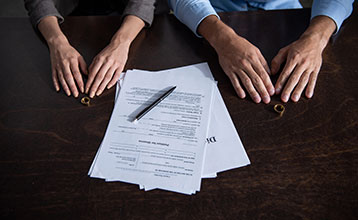The Women’s Charter provides for both child and spousal maintenance during the marriage or as part of divorce proceedings.
In Singapore, every parent has a legal duty to maintain their children under 21 years old. In some cases, the duty extends to after the child turns 21 years old. Section 68 of the Women’s Charter sets out the duty to provide reasonable financial support to your children. The duty extends to illegitimate children and exists whether the children are in your custody, the custody of the other spouse, or even a third party.
Likewise, section 69 of the Women’s Charter provides for maintenance payment towards a wife or an incapacitated husband. The duty to pay spousal maintenance is not automatic. The court will look at many factors to decide if an order for spousal maintenance is appropriate.
There must be proof that the spouse or parent has neglected or refused to provide reasonable maintenance to make a maintenance order during the marriage.
The legal duty to maintain your children and ex-spouse, however, extends beyond the marriage. In this article, we will focus on maintenance orders as part of divorce proceedings. When will the court grant an order, and what will the court consider when assessing the amount of the order?
Spousal maintenance
Section 113 of the Women’s Charter empowers the court to make maintenance orders as part of matrimonial proceedings. The court can order a husband to pay maintenance to his wife or former wife or a wife to pay maintenance to her incapacitated husband or former husband.
Calculating the amount of spousal maintenance
When deciding on the amount of maintenance to be paid, the court will look at the factors set out in section 114 of the Charter. This list is not exhaustive; the court will consider all the circumstances of the case.
Factors mentioned in section 114 include the following:
- The income, earning capacity, and financial affairs of each party to the marriage, now and in the foreseeable future.
- The current and foreseeable future financial needs, obligations, and responsibilities of each party.
- The standard of living enjoyed by the family before the divorce.
- The duration of the marriage and the age of each party.
- The physical and mental abilities of each party.
- The contributions made by each party to the marriage and the welfare of the family.
- The value of any benefit the party will lose due to the divorce, for example, a pension.
Will the court always grant a maintenance order?
Generally, the principle when considering spousal maintenance is financial preservation. Financial preservation typically requires that the wife be maintained at a standard that is (to a reasonable extent) similar to the standard of living she enjoyed during the marriage. Hence, the court will try to place the parties in the financial position they would have been if the marriage didn’t break down – and if they both discharged their financial obligations and responsibilities towards each other. However, the court will only make such an order if it is practicable and just to do so. The aim is always to be fair when granting maintenance orders.
Whether the court will order a spouse to pay maintenance will depend on the circumstances of each case.
In VPU v VPT [2021] SGHCF 11, the court made it clear that financial preservation does not mean that the parties must be in the exact same financial position after a divorce. The court refused to make a maintenance order. The court stated: “The reality of divorce is that both parties will have less money than they had during the marriage”.
When the wife is self-sufficient, earns a high salary, or receives a substantial amount of matrimonial property, the court may decide that it is not just to grant a maintenance order.
Nominal maintenance orders
Something to bear in mind is that the court cannot alter or increase maintenance under section 112(4) in the future if there is no maintenance order to start with. To ensure that the wife can approach the court in future if the circumstances change, the wife should get at least a nominal maintenance order during divorce proceedings. Even a nominal order of $1 opens up the possibility to vary and increase the order in future should the need arise.
The court, however, will not automatically order nominal maintenance. In ATE v ATD [2016] SGCA 2, the court clearly stated that it is not the husband’s duty to be a “general insurer of sorts”. The wife must present reasons why she should be entitled to a nominal maintenance order.
Maintenance for incapacitated husbands
Since the 2016 amendments of the Women’s Charter, incapacitated husbands can claim maintenance from their wives.
Incapacitated husband means a husband who was or became incapacitated before or during the marriage, by any physical or mental disability or any illness, from earning a livelihood. He is unable to maintain himself and continues to be unable to support himself financially.
When the court decides whether to grant a maintenance order and assess the amount, the court will consider the same factors when making a maintenance order favouring the wife or former wife.
Do you have to pay maintenance for the rest of your life?
No, a maintenance order is not supposed to be a life sentence. Section 72 provides that you may approach the court to rescind or vary the order if you can prove that there’s good cause to do so, or that your situation or the receiver’s circumstances changed. The test will be whether the receiving party can adjust without undue hardship.
Examples include:
- the receiving spouse remarries;
- their income improves sufficiently to sustain their daily living expenses; or
- the paying party’s financial situation deteriorates significantly.
Child maintenance
The duty to maintain your children remains even after divorce or remarriage. If it is proven that a parent refused or neglected to pay reasonable maintenance for a child who cannot provide for themselves, the court may order that the parent must pay monthly maintenance for the child. Child maintenance may also be ordered as a once-off lump sum. In some cases, even adult children older than 21 years old may be entitled to maintenance.
What factors will the court consider when assessing the amount of child maintenance?
There is no fixed formula to determine child maintenance. Generally, the court will consider the child’s essential living costs, such as food, clothing, accommodation, medical expenses, and education.
The court may order a parent to pay maintenance or contribute towards a child’s maintenance monthly or as a once-off lump sum.
In considering the amount of the maintenance, the court will take the factors set out in section 69(4) into account:
- The financial needs of the child.
- The age of the parents which could affect their ability to earn an income.
- The earning capacity, if any, of the child and the parents.
- Any physical or mental disabilities of the child.
- Contributions made by each parent to the welfare of the family.
- The standard of living enjoyed by the child.
- The manner in which the child is expected to be educated or trained.
- Any relevant conduct of the parents.
When can the court order maintenance for children over the age of 21 years old?
Usually, child maintenance ends when the child turns 21. In certain circumstances, however, the court may order child maintenance to carry on.
Section 69(5) of the Women’s Charter states that maintenance can be ordered for a child older than 21 years old if the child:
- has a mental or physical disability;
- is serving full-time national service;
- is still studying or receiving training for a trade, profession, or vocation; or
- other special circumstances justify a maintenance order.
Can parents agree that one parent does not have to pay child maintenance?
Parents are free to make their own agreements, but they cannot sign away the duty to maintain their child. The court will scrutinise such an agreement, and the child’s welfare will always be the overriding consideration for the court. The court will not allow a parent to walk away from their duty and responsibility to maintain their children.
If the agreement does not meet the child’s needs or is unfair towards one parent, the court can ignore the agreement and make an order that is fair, and in the child’s best interest.
What happens if a party fails to obey a child or spousal maintenance order?
A party cannot simply stop paying because their circumstances have changed.
Section 71 provides that the court may:
- issue a fine for every breach of the order;
- sentence the person to prison for up to one month for each month of non-payment;
- make a garnishee order;
- order the person to provide security for any future defaults in payment;
- order the person to undergo financial counselling; or
- order the person to community service for up to 40 hours.
Parties should note that the punishment does not cancel the duty to pay maintenance. After payment of the fine or serving time in prison, the maintenance remains payable.
Applying for a maintenance order
Spousal and child maintenance orders are usually resolved during the divorce proceedings.
If you are applying for a maintenance order without getting a divorce, you can apply via iFAMS or in person at the Family Justice Court’s registry. If the court is satisfied that your application is in order, the court will issue a summons to the other party.
If the other party shows up and agrees to the maintenance order, the order can be granted.
If the party does not show up, a warrant of arrest may be issued.
If the parties cannot agree on maintenance, the matter may proceed to trial.
If you are going through a divorce or want to apply for spousal or child maintenance without getting a divorce, you must understand your rights and the law applicable to maintenance in Singapore. An experienced lawyer will ensure that you follow the correct steps in obtaining a maintenance order and help you to secure the best possible outcome for your circumstances.


